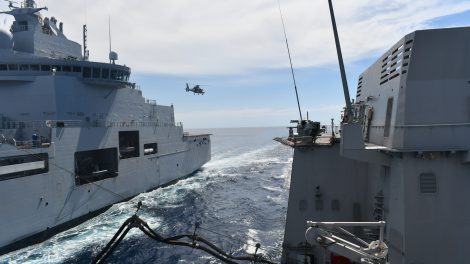“Today is a historic day,” said Italian Prime Minister Giorgia Meloni before boarding the plane to Egypt.
Why it matters: The summit highlighted Italy’s full integration into the Atlantic strategy, yet it is capable of engaging with the Arab world and ready to invest political and operational capital in one of the world’s most sensitive dossiers.
- Through this mission, Italy strengthened its profile as a stabilising power, with one foot firmly in Washington and the other in the wider Mediterranean.
She said: “The hostages have been released — an extraordinary achievement, the result of the determination of international diplomacy and the implementation of the first phase of President Donald Trump’s Peace Plan.”
- Meloni added, “Italy will continue to firmly support this process, in the awareness that peace is built through actions, not words.”
- Looking ahead: “Now begins a new phase: consolidating the ceasefire and fully implementing the agreement to build a future of lasting peace and stability.”
The operational role: Italy as a stabilising force. PM Meloni proposed a model of intervention with a strongly pragmatic approach based on three pillars: stabilization, reconstruction, and development.
- The “Protezione Civile” and humanitarian aid: Rome offered logistical and technical expertise for coordinating aid, building temporary structures, and restarting education and health services.
- Italy’s humanitarian commitment was symbolised by the “Food for Gaza” program, which coordinated aid delivery through public institutions, private partners, and civil society, in collaboration with the World Food Programme.
- Tangible results: Foreign Minister Antonio Tajani highlighted Italy’s operational record: nearly 200 Palestinian children were treated in Italian hospitals, 15 humanitarian missions were completed, and the first Palestinian students and researchers were welcomed at Italian universities.
- “Our concrete and operational action would not be possible if Italy were not a respected actor worldwide,” Tajani said in Parliament.
- Carabinieri and Military Engineers: Around 250 Carabinieri were reportedly preparing for deployment to Gaza as part of the International Stabilisation Force (ISF).
- mission is to train the future Palestinian police, focusing on counterterrorism and public order — areas where Italian forces are internationally recognised for excellence.
- They will be joined by the Army’s engineering corps, providing comprehensive technical expertise.
- European dimension: Italy’s role will also extend to the EU Border Assistance Mission (EUBAM) in Rafah, supporting the reopening of the crossing with Egypt and facilitating the secure flow of goods and people.
The political axis: between the White House and the Arab world. The summit also served as a test for Meloni’s diplomatic posture:
- The Italian Prime Minister reiterated the “indissoluble bond” between Italy and the United States, invoking the transatlantic brotherhood commemorated on Columbus Day, established in 2004 to honour one of “Italy’s most fantastic sons.”
- A diplomatic source noted that U.S. President Donald Trump sent a “powerful” message on Columbus Day.
- At the same time, Meloni nurtured dialogue with Egypt, Saudi Arabia, and Jordan, positioning Italy as a balancing partner in the new phase of the Aqaba Process promoted by Amman.
- On Tuesday, October 14, King Abdullah II of Jordan was expected in Rome to meet the Prime Minister, and together they were to host on October 15 a meeting of the Aqaba Process — an initiative focused on countering terrorism and extremism, which this time centred on the situation in West Africa.
- Rome aimed to act as a technical and credible mediator between Washington and the Gulf, in line with the “Trump Plan” for regional pacification.
The diplomatic track. FM Tajani expressed Italy’s readiness to support the gradual recognition of the State of Palestine, conditional on Hamas’ exclusion from Gaza’s future government — a stance drawn from a parliamentary motion inspired by the government.
- Following the Washington–Jerusalem–Doha triangle’s decisive acceleration of the peace framework, Italy’s dual track — humanitarian and security — became a cornerstone of the implementation phase.
- The Carabinieri’s long-standing cooperation with the Palestinian police reinforced Italy’s credibility as a trusted partner rather than a purely political interlocutor. After being recalled in 2023, Italian officers returned in January for a training mission in Rafah and Jericho, resuming a relationship built over years of mutual trust.
What we’re watching: The immediate goal was to contribute to Gaza’s civilian governance and strengthen cooperation with Israel for the security of humanitarian corridors. The next step will take place in Rome, where Meloni and Tajani will meet King Abdullah II of Jordan to define the roadmap for the post-Sharm phase.
Between the lines: Italy’s credibility in both humanitarian and security domains — from hospitals to police training — made it a natural stabilizer in Trump’s post-Gaza peace playbook.





